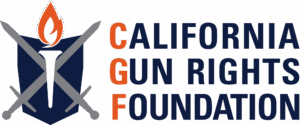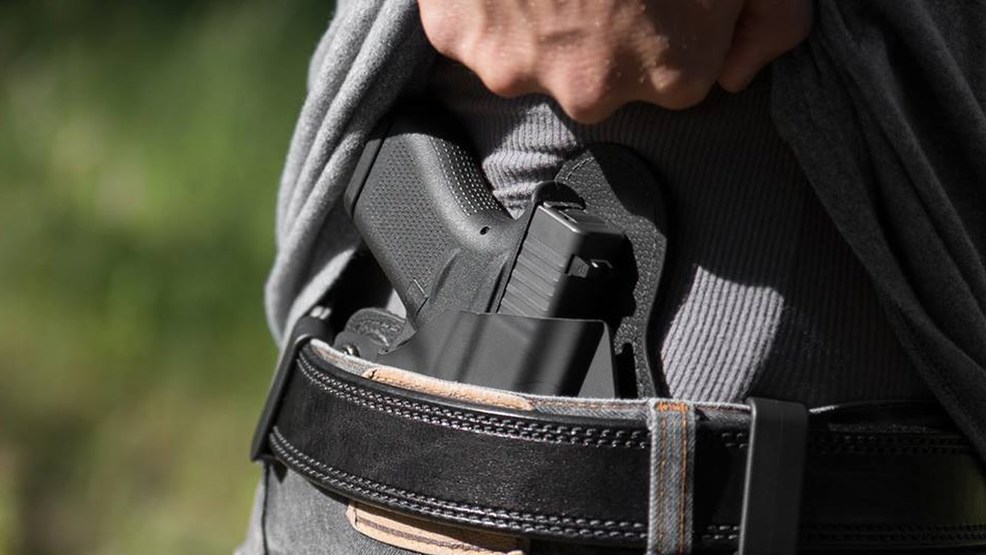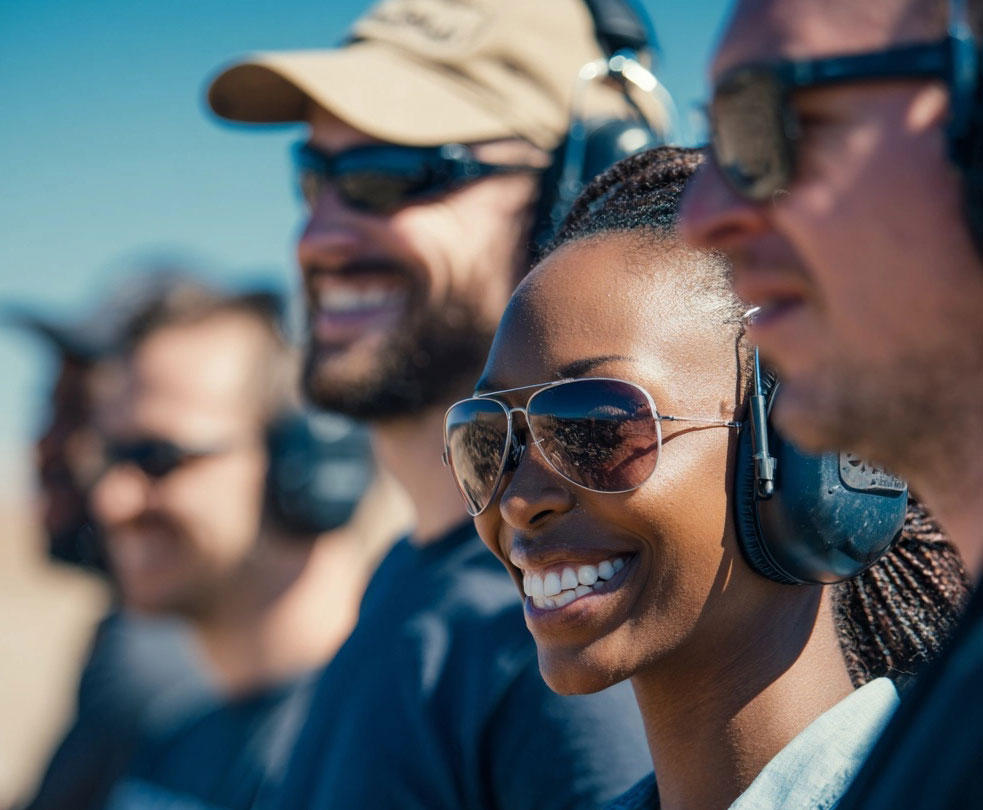This is the fourth in a multi-part series on CGF’s Silvester v. Harris federal Second Amendment lawsuit, an action that challenges the 10-day waiting period laws (“WPL”) as unconstitutional (as applied).
AMICI CURIAE IN SUPPORT OF PLAINTIFFS/RESPONDENTS JEFF SILVESTER, BRANDON COMBS, THE CALGUNS FOUNDATION, AND SECOND AMENDMENT FOUNDATION
The amici curiae supporting Kamala Harris’ bid to overturn the lower court ruling have had their chance to weigh in, which we covered in Part 2 of this series.
Here, we discuss the pro-Second Amendment amici in support of Jeff Silvester and the other Plaintiffs/Respondents. Two notable and informative amici briefs were filed in support of upholding the District Court’s ruling:
- A brief on the law and history by California Rifle and Pistol Association and Gun Owners of California (brief by attorneys C.D. Michel, Clinton Monfort, and Anna Barvir of Michel & Associates, P.C.); and,
- A brief on empirical evidence and the opposing amici’s erroneous citation to various studies by Crime Prevention Research Center (brief by CRPC’s Dr. John Lott and attorney George Lee of Seiler, Epstein, Ziegler, and Applegate).
We are grateful for these amici organizations’ powerful briefs and sincerely appreciate their respective counsels’ excellent work. If you want to thank them for their efforts, please consider joining or donating to CRPA, GOC, and CPRC.
CRPA/GOC BRIEF: THERE IS NO CONSTITUTIONAL EXEMPTION FOR “LONGSTANDING” REGULATIONS, NOR ARE THE WPL “NARROWLY TAILORED” ENOUGH TO SURVIVE SCRUTINY
The California Rifle & Pistol Association and Gun Owners of California brief brought additional constitutional perspective to the table, reinforcing Plaintiffs/Respondents arguments that there is no broad constitutional exemption for “longstanding” regulations and that the WPL are not “narrowly tailored” enough to survive appropriate constitutional scrutiny. As the CRPA/GOC amici explain:
[C]ourts have regularly refused to shield laws from constitutional scrutiny absent evidence that the restrictions would have been understood to fall outside the scope of the Second Amendment at the time of the founding and ratification—even if those restrictions could arguably be shoe-horned into one of the “presumptively lawful” categories or if a handful of analogues have been enacted in some jurisdictions since that time period.
Heller’s discussion of examples of certain “presumptively lawful” regulations was not exhaustive, nor did it create unchallenged “safe harbors” for those regulations:
[T]he Supreme Court explained that laws regulating the commercial sale of firearms are ‘presumptively lawful,’ but “it did not purport to exempt” all such laws from constitutional scrutiny outright.
For these WPL regulations to survive constitutional scrutiny, they must be “narrowly tailored” to meet the government’s “compelling interest.” Forcing gun owners to submit to multiple waiting periods does not meet this standard:
While narrow tailoring under intermediate scrutiny need not be the “least restrictive means” of accomplishing its stated objective, the government still bears the burden of establishing that the law is “closely drawn to avoid unnecessary abridgment” of constitutional rights.
* * * Because the waiting period law is not likely to advance its interests as applied to gun owners who have passed a background check, and because the state has not demonstrated that the law does not burden substantially more conduct than necessary to achieve its interests, the district court did not commit reversible error in declaring this requirement invalid under intermediate scrutiny.
CPRC: NO DATA SUPPORTS ATTORNEY GENERAL HARRIS’ SPECULATIONS ABOUT THE WPL, BUT DATA DOES SUPPORT THE COURT’S CONCLUSIONS ABOUT CCW LICENSEES
The Crime Prevention Research Center’s brief focuses on hard statistical data and critical analysis of statistical claims made by Kamala Harris and her supporting amici. Upon extensive review, CPRC found that Harris essentially has it backwards: there is no empirical data to support her assertions regarding the alleged positive effects of the WPL on current gun owners:
Even if there were to be a “cooling off effect,” as claimed, to deter crimes of passion (a colorful proposition for which there is no empirical evidence), Appellant and its supporting amici ignore that waiting periods also clearly prevent people who are being threatened from quickly obtaining a gun for self defense. If both effects likely occur, the question is which effect is greater. This is an empirical question, and the research generally finds no significant evidence of the impact of waiting periods on crime.
On the other hand, Harris’ assertion that there is no evidence CCW licensees are particularly law-abiding as a group is contradicted by all available data:
In sum, Appellant’s suggestion that CCW permit holders are equally as likely to be “violently impulsive,” or engage in straw purchases, as other members of the general public, is simply not a supportable fact. To the contrary, CCW permit holders on the whole are extremely law-abiding, responsible gun owners. . .
CONCLUSION
Amici serve an important role in lawsuits when they offer information and arguments helpful to the Court in evaluating the law and facts at issue in contentious cases, like this one. As “friends of the court,” CRPA/GOC and CPRC provided valuable insights, legal analysis, and data that make a strong case for the Ninth Circuit to uphold Judge Ishii’s ruling that found the WPL to violate Second Amendment rights.
CRPA and GOC effectively rebutted Harris and her supporting amici’s mischaracterizations of intermediate scrutiny standards and the “presumptively lawful” regulations mentioned in Heller.
CPRC’s empirical data and penetrating critique of the flawed studies (and mischaracterization of their conclusions) Harris and her supporting amici leverage to distract from the facts show that the public safety utility of the WPL does not fit with the constitutional standards for a restriction on a fundamental right.
Going forward: Attorney General Harris has requested and received an extension of time to file her Reply Brief, which is now due June 30, 2015. That brief will most likely be the last development in this case until oral arguments at the Ninth Circuit. Stay tuned for our analysis of her Reply in early July.
Part I: The State’s Opening Brief
Part II: The Amici in Support of California
Part III: The Plaintiffs/Appellees Fire Back in Defense of Your Second Amendment Gun Rights



